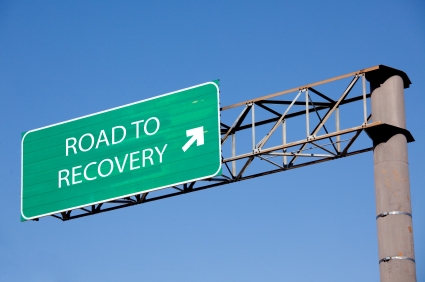Tools of Sobriety
Following are some of the concepts and techniques 12-Step rehabs teach to flesh-out the recovery program.
First Step Stories: A patient’s history of drug use and its consequences, inevitably narratives of powerlessness and unmanageability.
The First Drink/Drug: “I never heard of anybody getting drunk if he didn’t have that first drink.”
One Day At A Time: Giving up alcohol or drugs forever is almost too daunting to contemplate. 12-Step programs make the task more manageable by focusing on sobriety in manageable chunks.
Spirituality: The 12-Step spiritual program means “doing the next right thing,” in order to avoid the guilt, shame, anger and resentment that can trigger the cry for chemical relief.
Meetings: 12-Step meetings are a place to access key components of recovery: honesty, compassion, and understanding. They’re safe places where it’s OK to express, and thus diffuse, emotions that addicts used to turn to drugs to medicate away. They’re an endless source of inspiration, hope and instruction.
Sponsors: A sponsor is someone who has sobriety experience and guides you, as if you’re an apprentice, through each successive Step of the 12-Step program.
Gratitude: “A grateful heart doesn’t need to drink or use drugs.”
Working With Newcomers: Vounteering to work with newcomers to sobriety is a powerful tool for helping volunteers stay sober.
Anonymity: AA is an anonymous program for a number of reasons, chief among them humility.

